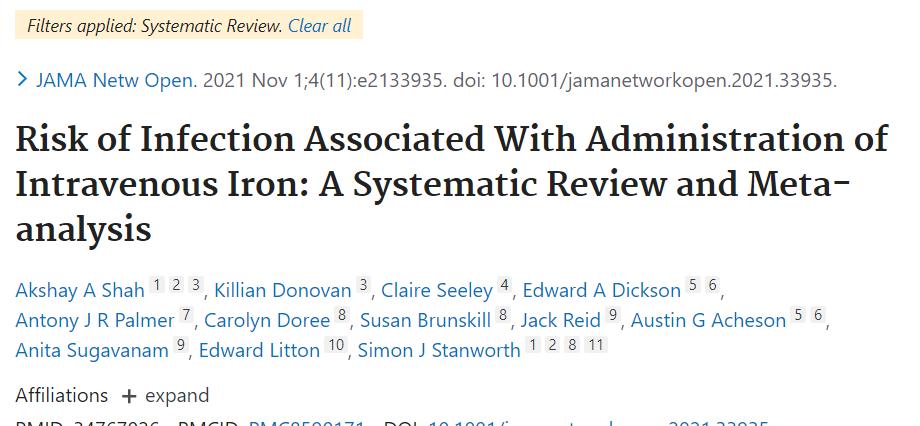*For medical professionals only
Clinical information, 1s reach
Iron deficiency anemia is one of the common diseases that seriously threaten human health worldwide, and the traditional therapeutic drug oral iron has large gastrointestinal adverse reactions, poor absorption and slow onset of action, while intravenous iron supplementation with polysaccharide iron complex as the main active drug component can be quickly and safely effective [1].
Oral iron therapy is limited and manifests primarily as gastrointestinal reactions: loss of appetite, nausea, vomiting, burning or bloating in the epigastric region, diarrhea, or constipation, resulting in no apparent response. Previous studies have shown that intravenous iron infusion can be rapidly mobilized and released into the reticuloendothelial system and immediately used for the production of red blood cells [2]. Therefore, many clinical guidelines recommend intravenous iron supplementation, but its safety needs to be further confirmed.

Source: Screenshot of literature
Recently, Shah AA et al. published a paper in jama Netw Open, the journal of the American Medical Association, which compared the risk of infection associated with intravenous iron supplementation compared with oral iron supplementation or no iron supplementation [3]. Let's take a look at today's newsletter!
Want to see more of the previous issues of "Top Essentials"?
Go to the "Clinical Assistant in Medicine" service number to see it!